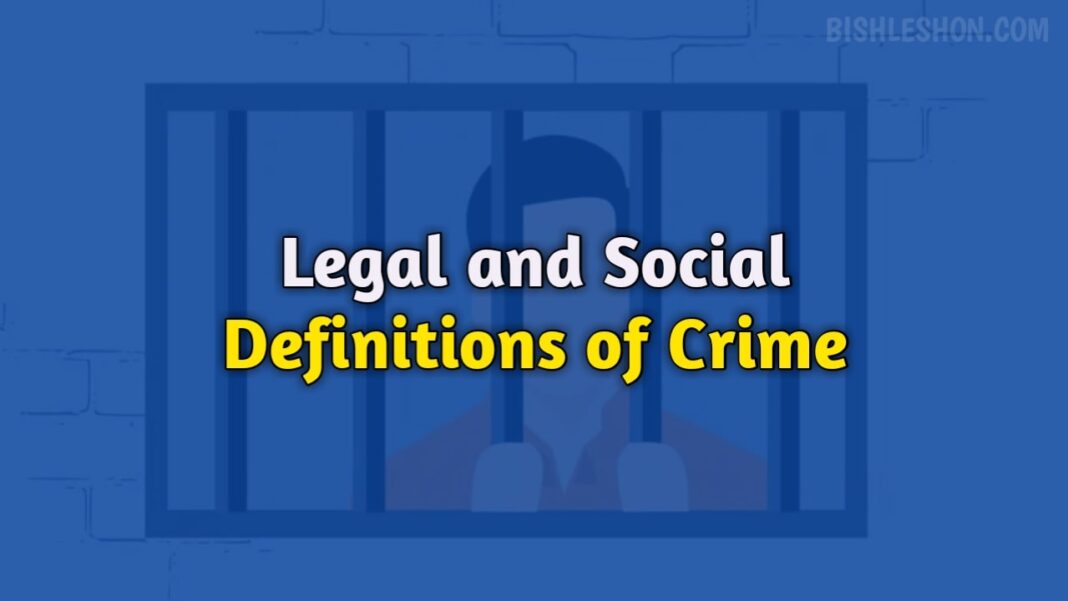The term “crime” is commonly used in our daily lives, but what exactly constitutes a crime may vary depending on the context. Crime can be defined in legal terms or in social terms, and the two definitions can differ significantly. Understanding the legal and social definitions of crime is crucial for individuals who want to navigate the legal system or for those who want to understand the societal impact of criminal behavior.
Table of contents
Legal Definition of Crime
In the legal context, a crime is an act or omission that is prohibited by law and punishable by the state. The act or omission must also be considered wrongful, meaning that it violates a societal norm or standard of behavior. Criminal law sets out the definitions of crimes, their elements, and the punishments that can be imposed upon conviction. Criminal laws can differ from one jurisdiction to another, and they can change over time as societal values and norms change.
Social Definition of Crime
In the social context, crime is defined as behavior that is considered deviant or unacceptable within a particular society. This definition is based on the societal norms, values, and expectations of a given community. Behavior that is considered criminal in one society may not be considered criminal in another society. For example, drug use may be criminalized in some countries but not in others.
Differences between Legal and Social Definitions
One of the main differences between legal and social definitions of crime is the way in which they are enforced. Legal definitions of crime are enforced by the state through the criminal justice system, while social definitions of crime are enforced by societal norms and expectations. Legal definitions of crime are also more formalized and codified, while social definitions can be more ambiguous and subject to change over time.
Implications of Different Definitions
The differences between legal and social definitions of crime can have significant implications for individuals and society as a whole. For example, behavior that is considered criminal in one society may be socially acceptable in another, which can lead to misunderstandings and conflicts between different communities. The legal definition of crime also affects the way in which individuals are treated by the criminal justice system, including the severity of punishments that can be imposed.
Conclusion
In conclusion, the definitions of crime can vary depending on the context in which they are used. Legal definitions of crime are based on the laws and regulations set by the state, while social definitions are based on societal norms and expectations. The differences between the two can have significant implications for individuals and society as a whole, and it is important to understand these differences in order to navigate the legal system or to understand the impact of criminal behavior on society.
Reference
- Chambliss, W. J. (2011). Crime and criminal behavior. SAGE Publications.
- Duff, R. A. (2010). Criminal law and punishment. Oxford University Press.
- Hagan, J. (2010). Introduction to criminology: Theories, methods, and criminal behavior. SAGE Publications.



 For all latest articles, follow on Google News
For all latest articles, follow on Google News